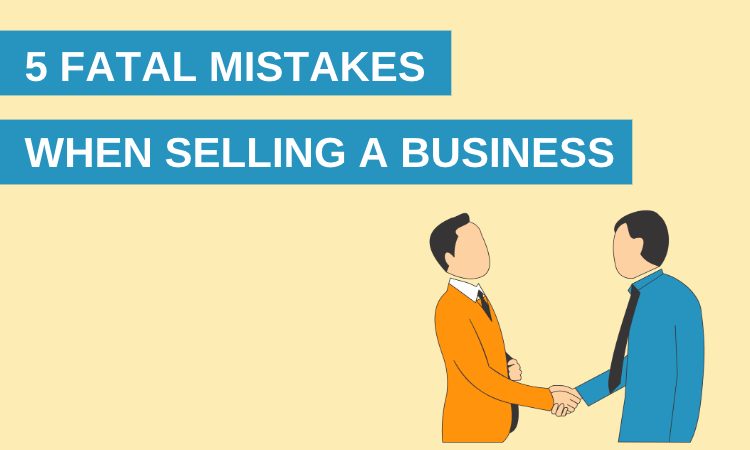Thinking of selling a business? How successful this venture proves will depend on how prepared you are. Here are 5 things to avoid at all costs – and how to make sure you do.
Delaying getting a legal team in place
Your legal team will represent the backbone of this process, and it is vital that they are aware of your situation – and can help prepare the business to go through it – as soon as possible. Selling a business takes a lot of time and a lot of foresight, and it’s so important that you don’t assume a corporate solicitor can be brought in at the last minute to check over the final contract for you. They need to be briefing you from day 1.
How to avoid it: Speak to your corporate solicitors before you start anything else.

Underestimating the importance of correcting operational issues
Just because you’re exiting the business, that’s no reason to let longstanding issues continue to eat away at it from the inside. Not only could these issues impact the business’s projections, but not having a strong enough plan in place for navigating the next phase could deter prospective buyers.
How to avoid it: From your business succession plan to formal strategic plans, don’t overlook the importance of addressing issues head-on, with a view to helping the business continue to grow. A consultant may be needed for this.
Not getting the business (and its assets) valued properly
Whatever you’re selling, it’s vital you go through the necessary steps to get a fair price. Valuing a business is a lot more complicated than valuing a single, physical asset like a car or a house, but it’s still possible – and absolutely imperative. From stock to shares and revenue projections, everything needs to be properly accounted for. It’s not a process you can ‘wing’.
How to avoid it: take your time, don’t make any assumptions, and get professional help for valuing the business.
Sloppy documentation
There is so much paperwork to fill in and complete when you’re selling a business, but that’s only the tip of the iceberg. Any prospective buyer will want to carry out their own due diligence, and that means all relevant paperwork needs to be properly completed and organised, or there could be major delays.
From your financial statements to your legal contracts, and any formal agreements you have made with customers or vendors, everything needs to be ready for the scrutiny of the prospective buyer, and their own legal team.
How to avoid it: Keep up to date with all paperwork, don’t start trying to sell until everything is in order, and turn to your legal team for help ensuring everything is up to date.
Letting the cat out of the bag
In the overwhelming majority of cases, the long and complicated process of selling/buying a business is protected by a confidentiality agreement between all parties involved. That way, employees and customers needn’t feel unsettled – and the news can be broken at a time that suits everyone’s best interests.
If you fail to keep the situation confidential, then the entire sale could fall through. Even if it doesn’t, employees may start to quit for fear of shaky job security – and customers could also start to feel sceptical of the business’s future.
How to avoid it: Create watertight confidentiality agreements, and don’t let the news slip to anyone else.

